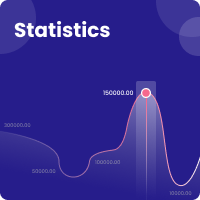Effects at one year of an educational program on the metabolic control of patients with diabetes in a specialized service of a Peruvian national hospital
DOI:
https://doi.org/10.21615/cesmedicina.35.1.1Keywords:
Health Education, Diabetes Mellitus, Perú, Patient education, Disease managmentAbstract
Objective: To determine the effects on the control of diabetes during one year of follow-up of a group of patients who received an educational program added to the usual treatment in the specialized outpatient consultation of the National Hospital “Edgardo Rebagliati Martins”, Peru.
Methodology: Quasi-experimental study, 90 patients were distributed in 2 groups: intervention versus control. The intervention group received 4 educational sessions in groups of 5-8 participants. Pharmacological therapy was maintained without significant modifications 3 months before and throughout the follow-up. Changes in the clinical-biochemical parameters were determined, mainly HbA1c at the beginning, at 6 and 12 months after the intervention.
Results: The 90 patients completed all the sessions and follow-up consultations with the collection of samples for the determination of the biochemical parameters. In the intervention group, HbA1c decreased 1.2% at 12 months while the control group showed an increase of 0.5%; weight, fasting blood glucose, and LDL cholesterol also decreased during follow-up; the percentage of patients who reached the HbA1c goals increased by 22 % and LDL by 11 % at 12 months of follow-up.
Conclusions: A diabetes education program added to the conventional specialized management in a national referral hospital improved metabolic control during one year of follow-up.
Downloads
References
IDF Diabetes Atlas Committee. Global and regional diabetes prevalence estimates for 2019 and projections for 2030 and 2045: Results from the International Diabetes Federation Diabetes Atlas, 9th edition. Diabetes Res Clin Pract. 2019;157:107843. DOI: 10.1016/j.diabres.2019.107843
Seclen S, Rosas M, Arias A, Medina C. Prevalence of diabetes and impaired fasting glucose in Peru: report from PERUDIAB, a national urban population-based longitudinal study. BMJ Open Diabetes Research and Care 2015;3: e000110. DOI: 10.1136/bmjdrc-2015-000110
Ramos W, López T, Revilla L, More L, Huamaní M, Pozo M. Resultados de la vigilancia epidemiológica de diabetes mellitus en hospitales notificantes del Perú, 2012. Rev Per Med Exp Salud Pública. 2014;31(1): 09-15.
Casanova M, Bayarre H, Navarro D, Sanabria G, Trasancos M. Educación diabetológica, adherencia terapéutica y proveedores de salud. Rev Cub Salud Pública. 2015;41(4):677-680.
Coronel M, Córdova C, Delgado M, Sánchez W. Educación terapéutica sobre diabetes mellitus: pilar esencial del tratamiento. Rev Cient Mundo Invest Conoc. 2019; 3(1): 38-57.
Asociación Latinoamericana de Diabetes. Guías ALAD sobre el Diagnóstico, Control y Tratamiento de la Diabetes Mellitus Tipo 2 con Medicina Basada en Evidencia. Rev ALAD. 2019. Disponible en:
http://www.revistaalad.com/guias/5600AX191_guias_alad_2019.pdf
Deakin TA, Cade JE, Williams R, Greenwood DC. Structured patient education: the diabetes X-PERT Programme makes a difference. Diab Med. 2006; 3(9):944-954. DOI: 10.1111/j.1464-5491.2006.01906.x
Khunti K, Gray LJ, Skinner T, Carey ME, Realf K, Dallosso H, et al. Effectiveness of a diabetes education and self management programme (DESMOND) for people with newly diagnosed type 2 diabetes mellitus: three year follow-up of a cluster randomised controlled trial in primary care. BMJ 2012;344:e2333. DOI: https://doi.org/10.1136/bmj.e2333
Fernández S. Determinación del tamaño muestral. Unidad de Epidemiología Clínica y Bioestadística. Complexo Hospitalario Universitario de A Coruña. Cadernos de Atención Primaria. 1996; 3,138-14. Actualizada el 01/12/2010. Disponible en: http://www.fsterra.com/mbe/investiga/9muestras/9muestras2.asp
American Association of Diabetes Educators. AADE Guidelines for the Practice of Diabetes Self-Management Education and Training (DSME/T). Diab Educ. 2009;35(3_suppl):85S-107S. DOI:10.1177/0145721709352436
American Association of Diabetes Educators. AADE 7°Self-Care behaviors american association of diabetes educators position statement. 2014. Disponible en: https://www.diabeteseducator.org/docs/default-source/legacy-docs/_resources/pdf/publications/aade7_position_statement_final.pdf?sfvrsn=4
American Diabetes Association. Standards of Medical Care in Diabetes. Diab Care. 2014; 37 (Suppl 1),S14-80. DOI: https://doi.org/10.2337/dc14-S014
Paz-Ibarra J, Benites R. Efecto de un programa de educación diabetológica en pacientes adultos de la consulta ambulatoria en un hospital nacional peruano. An Fac Med. 2020;81(2):161-6. DOI: https://doi.org/10.15381/anales.v81i2.17673
Hernández S, García C, Mehta R, Aguilar C, Kershenobich D. Innovative models for the empowerment of patients with type 2 Diabetes: The CAIPaDi Program. Recent Patents Endocrine, Metabolic & Immune Drug Discovery, 2014; 8(3), 202-209.
Duke SA, Colagiuri S, Colagiuri R. Individual patient education for people with type 2 diabetes mellitus. Cochrane Database System Reviews. 2009; 1:CD005268
Mendoza M, Velasco J, Nieva R, Andrade H, Rodríguez C, Palou E. Impacto de un programa institucional educativo en el control del paciente diabético. Rev Med Inst Mex Seguro Soc. 2013;51(3):254-9
Roselló M, Guzmán S, Aráuz A, Arias D, Schmidt M, Vargas M. Efecto de la metodología de educación terapéutica, mediante la evaluación de los cambios bioquímicos, antropométricos y dietéticos en las personas con diabetes mellitus tipo 2. Rev ALAD. 2018;8(3):99-109. DOI: 10.24875/ALAD.M18000006
Wing R, Bahnson J, Bray G, Clark J, Coday M, Egan C for the Look AHEAD Research Group. Long-term effects of a lifestyle intervention on weight and cardiovascular risk factors in individuals with type 2 diabetes mellitus: four-year results of the Look AHEAD trial. Arch Intern Med. 2010 Sep 27;170(17):1566-75. doi: 10.1001/archinternmed.2010.334
Gerstein HC, Miller ME, Byington RP, Goff D, Bigger T, Buse J, et al for the Action to Control Cardiovascular Risk in Diabetes Study Group. Effects of intensive glucose lowering in type 2 diabetes. N Engl J Med. 2008; 358(24):2545-59. DOI: 10.1056/NEJMoa0802743
Duckworth W, Abraira A, Moritz T, Reda D, Emanuele N, Reaven P, et al., for the VADT Investigators. Glucose control and vascular complications in veterans with type 2 diabetes. N Engl J Med. 2009;360(2):129-39. DOI: 10.1056/NEJMoa0808431.
Patel A, MacMahon S, Chalmers J, Neal B, Billot L, Woodward M, et al for the ADVANCE Collaborative Group. Intensive blood glucose control and vascular outcomes in patients with type 2 diabetes. N Engl J Med. 2008; 12;358(24):2560-72. DOI: 10.1056/NEJMoa0802987
Holman R, Paul S, Bethel M, Matthews D, Neil H. 10-year follow-up of intensive glucose control in type 2 diabetes. N Engl J Med. 2008 Oct;359(15):1577-1589. DOI: 10.1056/nejmoa0806470
Castillo Y, Aguilar C, Mendivil C, Rodríguez M, Lyra R. Consenso del Grupo de Tareas de la Asociación Latinoamericana de Diabetes (ALAD) sobre el diagnóstico y manejo de la dislipidemia diabética. Rev ALAD. 2018; 8(3):118-140.
Steinsbekk, A., Rygg, L., Lisulo, M. Group based diabetes self-management education compared to routine treatment for people with type 2 diabetes mellitus. A systematic review with meta-analysis. BMC Health Serv Res. 2013; 12, 213. https://doi.org/10.1186/1472-6963-12-213
Deakin T, McShane C, Cade J, Williams R. Group based training for self-management strategies in people with type 2 diabetes mellitus. Cochrane Database System Reviews. 2005. 2:CD003417
Downloads
Published
How to Cite
Issue
Section
License
Copyright (c) 2021 CES Medicina

This work is licensed under a Creative Commons Attribution-NonCommercial-ShareAlike 4.0 International License.
Derechos de reproducción (copyright)
Cada manuscrito se acompañará de una declaración en la que se especifique que los materiales son inéditos, que no han sido publicados anteriormente en formato impreso o electrónico y que no se presentarán a ningún otro medio antes de conocer la decisión de la revista. En todo caso, cualquier publicación anterior, sea en forma impresa o electrónica, deberá darse a conocer a la redacción por escrito.
Plagios, duplicaciones totales o parciales, traduccones del original a otro idioma son de responsabilidad exclusiva de los autores el envío.
Los autores adjuntarán una declaración firmada indicando que, si el manuscrito se acepta para su publicación, los derechos de reproducción son propiedad exclusiva de la Revista CES Medicina.
Se solicita a los autores que proporcionen la información completa acerca de cualquier beca o subvención recibida de una entidad comercial u otro grupo con intereses privados, u otro organismo, para costear parcial o totalmente el trabajo en que se basa el artículo.
Los autores tienen la responsabilidad de obtener los permisos necesarios para reproducir cualquier material protegido por derechos de reproducción. El manuscrito se acompañará de la carta original que otorgue ese permiso y en ella debe especificarse con exactitud el número del cuadro o figura o el texto exacto que se citará y cómo se usará, así como la referencia bibliográfica completa.



